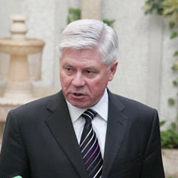Worrying taxation initiatives from court officials

These ‘extra-judicial’ measures are to make life easier for tax officials/court marshals and reduce the case logs on the judiciary system, which, under the existing taxation law, has to sanction the forced collections of evaded taxes and fines. In his argument, Lebedev also noted the rising number of private tax defaulters’ cases — from 2mln in 2007 to 3mln in 2008 — while the most frequently collected sums, from 2 kopeks to R50, do not cover the costs of their legal redemptions, which averages R27,000 per case. Besides, the courts, he further argued, have almost always ruled positively on these cases, which were never appealed by the defaulters, thus making the whole process ‘a mere judiciary formality.’ While these arguments might look logical on their face value, they, however, failed to address the two fundamental taxation principles — the ‘presumption of innocence’ of taxpayers and the placement of the ‘onus of proof of guilt’ on the state, the legal basis of all normal taxation systems in civilized countries —which will be fragrantly undermined by these amendments.
Apart from these justified apprehensions, the Supreme Court, displaying unprecedented legal ‘myopia,’ while completely failing to factor in the country’s unique reality and mentality of its citizens, ‘naively’ believes in the infallibility of the taxation authorities in calculation of individuals’ taxes and other vices. The occurrence of these incidences will come at a huge price to the conscientious taxpayers, who will now have to prove that their innocence in courts. Such trends, considering the ways these officials operate, will, contrary to expectations, also flood the courts, but this time, with taxpayers’ appeals against tax officials’ actions. Of course, it goes, without saying that most Russians would revert to hoarding their cash outside the banking system, preferably, under their trusted mattresses that served them well in the chaotic 1990s. The harm to the local banking industry will defy calculus.
This is, probably, one of the reasons, why Supreme Arbitration Court Chairman Anton Ivanov, who has huge experience handling such cases among companies, remains skeptical about the effectiveness of the Supreme Court’s bill in meeting its stated objectives. This stance leaves a window of hope that the questionable amendments would be killed by superior arguments and a lesson for all state officials: that the earlier they stop simplifying their official duties at the expense of the citizens, whom, according to the Constitution, they are supposed to serve loyally, the better for the country.












 Web design,
Web design,